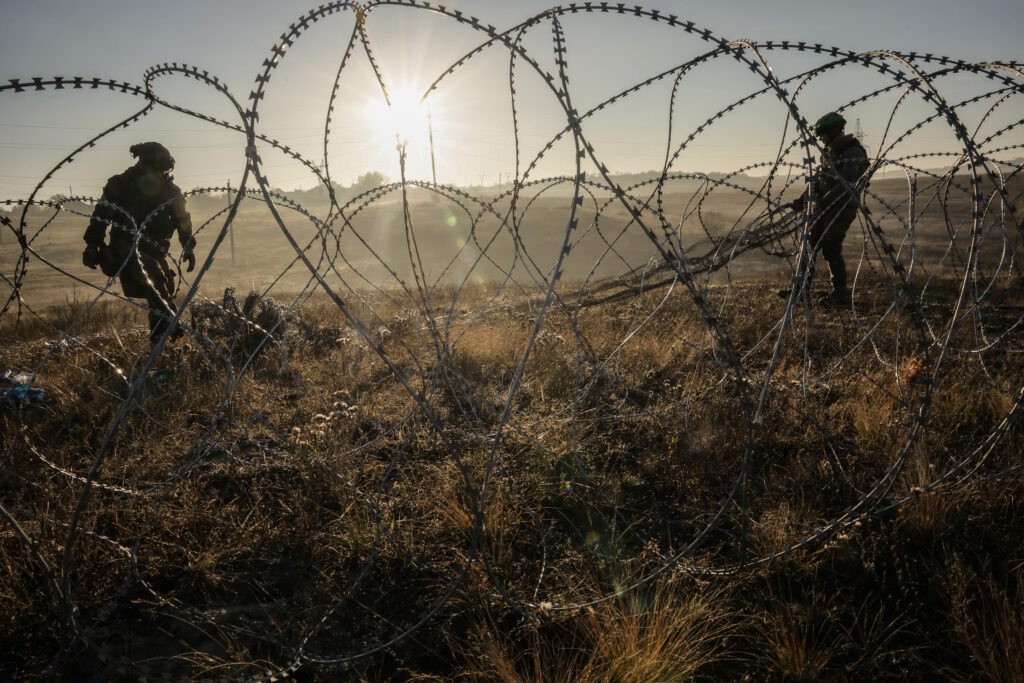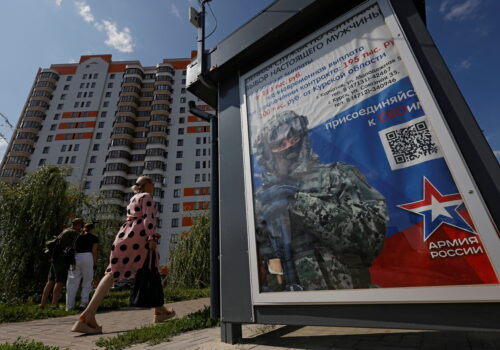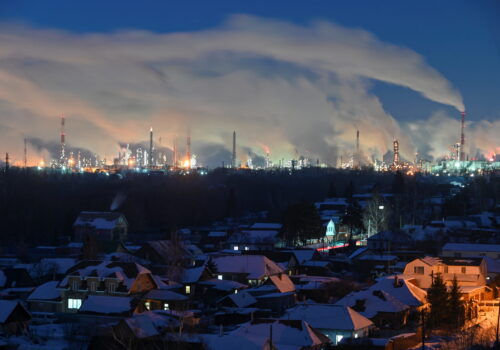As the world prepares for Donald Trump’s return to the White House, many are now expecting to see a new push for negotiations to end Russia’s war in Ukraine. While Trump has yet to clarify his vision for a potential settlement in Ukraine, allies including vice president-elect JD Vance have suggested that any agreement would involve freezing the war along the current front lines and allowing Russia to maintain control over approximately 20 percent of Ukraine.
Supporters of this approach typically claim that it is the only realistic option. This argument reflects the current battlefield dynamics of the war, with Russia steadily advancing and the overstretched Ukrainian military seemingly in no position to retake areas seized by Moscow since 2022. Crucially, however, advocates of a front line freeze tend to conveniently overlook the fact that any agreement involving territorial concessions would also mean condemning millions of Ukrainians to the horrors of permanent Russian occupation.
Stay updated
As the world watches the Russian invasion of Ukraine unfold, UkraineAlert delivers the best Atlantic Council expert insight and analysis on Ukraine twice a week directly to your inbox.
Since the very first weeks of the invasion, it has been clear that one of Russia’s key war aims is the destruction of Ukrainian national identity. For those currently living under Russian occupation, this means everything from large-scale abductions and mass deportations to ideological indoctrination and blanket Russification.
With occupied areas of Ukraine largely cut off from the outside world, accurate information regarding the scale of the human rights abuses currently taking place remains limited. However, the available evidence indicates that a systematic campaign is underway to silence any potential dissent and impose a reign of terror on the Ukrainian civilian population. “Kremlin-occupied Ukraine is now a totalitarian hell,” Britain’s The Economist reported in early November.
Large numbers of Ukrainians in occupied regions of the country have been subjected to forced deportation or have simply disappeared. An Associated Press investigation in summer 2023 concluded that thousands of Ukrainian civilians are being detained in a network of formal and informal prisons across Russia and the territories it occupies, where they endure torture, psychological abuse, and are even forced to engage in slave labor. “Russia plans to build dozens more prisons,” the report claimed.
Eurasia Center events

In occupied regions, the Kremlin is working to erase all traces of Ukrainian statehood and seeking to Russify every aspect of daily life. These efforts include renaming streets, turning the clocks back to Moscow time, and pressuring residents to accept Russian citizenship in order to access basic public services such as healthcare and state pensions. Ukrainian schools under Russian occupation now teach a Kremlin-friendly curriculum that demonizes Ukraine while forcing students to celebrate the soldiers invading their country. Parents who resist risk losing custody of their children.
Russian attempts to indoctrinate young Ukrainians are not restricted to the classroom. At least 20,000 Ukrainian children have been abducted from occupied regions since the start of the full-scale invasion, with many sent to a network of camps where they are subjected to indoctrination aimed at depriving them of their Ukrainian nationality and turning them into Russians.
Ukrainian civil society activist Mykola Kuleba, who is at the forefront of efforts to secure the return of young Ukrainians from Russia, has accused the Russian authorities of attempting to brainwash Ukrainian children and erase their identity. In March 2023, the International Criminal Court in The Hague issued an arrest warrant for Russian President Vladimir Putin for his alleged role in these mass abductions.
For those detained in Russian-occupied Ukraine, the outlook is particularly grim. In September 2024, the UN’s Independent International Commission of Inquiry on Ukraine reported that the Russian authorities were employing “common patterns of torture” against Ukrainian prisoners in occupied regions of Ukraine as well as in Russia. “Torture has been used as a common and acceptable practice with a sense of impunity,” the report stated.
Western leaders need to recognize that trading land for peace in Ukraine would mean abandoning millions of Ukrainian civilians to the chilling realities of life under Russian occupation. The Kremlin has already provided ample evidence of its intentions in occupied Ukraine and its plans for the local population. The fate of these Ukrainians must not be forgotten as the international debate over a possible negotiated settlement evolves in the coming months.
Mercedes Sapuppo is a program assistant at the Atlantic Council’s Eurasia Center.
Further reading
The views expressed in UkraineAlert are solely those of the authors and do not necessarily reflect the views of the Atlantic Council, its staff, or its supporters.

The Eurasia Center’s mission is to enhance transatlantic cooperation in promoting stability, democratic values and prosperity in Eurasia, from Eastern Europe and Turkey in the West to the Caucasus, Russia and Central Asia in the East.
Follow us on social media
and support our work
Image: Sappers of the 24th mechanized brigade named after King Danylo install non-explosive obstacles along the front line, amid Russia's attack on Ukraine, in the outskirts of the town of Chasiv Yar in Donetsk region, Ukraine October 30, 2024. (Oleg Petrasiuk/Press Service of the 24th King Danylo Separate Mechanized Brigade of the Ukrainian Armed Forces/Handout via REUTERS)




